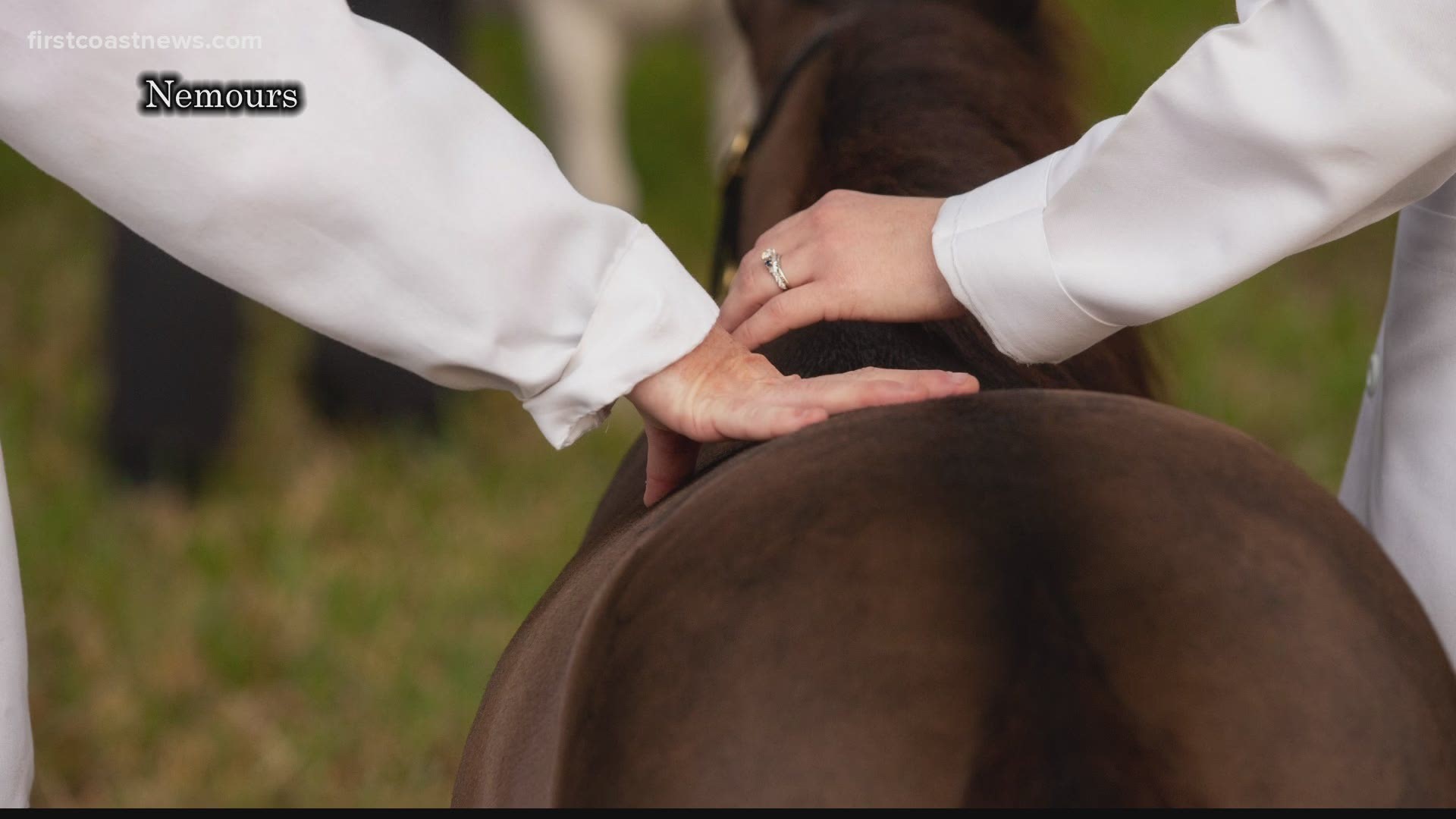JACKSONVILLE, Fla. — Therapy animals help reduce stress, make us smile when we are sad and just overall, make our days better, especially when we have to visit the hospital or doctor's office.
Thursday marks National Therapy Animal Day!
Animals in hospitals or at medical facilities are nothing new, but instead of just greeting patients to reduce stress, what if the animal was a part of the treatment therapy?
That is the goal of the new ADAPT program at Nemours Children's Specialty Care. ADAPT stands for Assisted Dog And Pony Therapy and it is a partnership between Nemours and University of North Florida Brooks College of Health. The ADAPT providers are taking courses at UNF in a first of its kind program to complete a post-graduate certificate in animal-assisted therapy through the Brooks College of Health Clinical Mental Health Counseling Program
The idea is to use the therapy animal as a part of treatment with a licensed mental health professional.
"So it would involve licensed therapists, psychologists and nurse practitioners where we would actually include this as a modality in our treatment plan," tells Jenny Pfieffer, she is a clinical nurse specialist and spearheading the new ADAPT program. Think of it as a triangle model, with the patient and then the therapy animal and licensed mental health professional both working with the patient.
Gina Malejko is a pediatric nurse practitioner and psychologist and she says incorporating an animal into mental health therapy can help in several ways.
"Some of the outcomes it can help support are improving self-confidence and self- image, emotional support, stress relief and improving social skills which are really important in multiple mental health diagnosis," tells Malejko.
To the best of their knowledge, it makes Nemours Children's Specialty Care in Jacksonville the only free-standing pediatric specialty clinic in the country that would bring in animals as a direct part of the therapy treatment.
Erin Pfeffer is a social worker with Nemours and says she could see this small pilot program becoming popular among patients and their families because people, especially children, enjoy working with animals.
"So we are excited to be a part of this growing field and to find out how much further we can take it," tells Pfeffer.
They are hoping to begin rolling out the ADAPT program in the fall. In the meantime, with social distancing still in effect, the team has come up with a creative way to still connect with patients. They have put together a series of videos, starring the therapy animals, that touch on a variety of current topics - like social distancing.
"We really hoped that by including the animals we would not only increase the engagement in videos, but also the effectiveness," tells Malejko.
For more on the ADAPT program or the videos put together by the animal therapy team at Nemours or if you would like to donate, click here.

